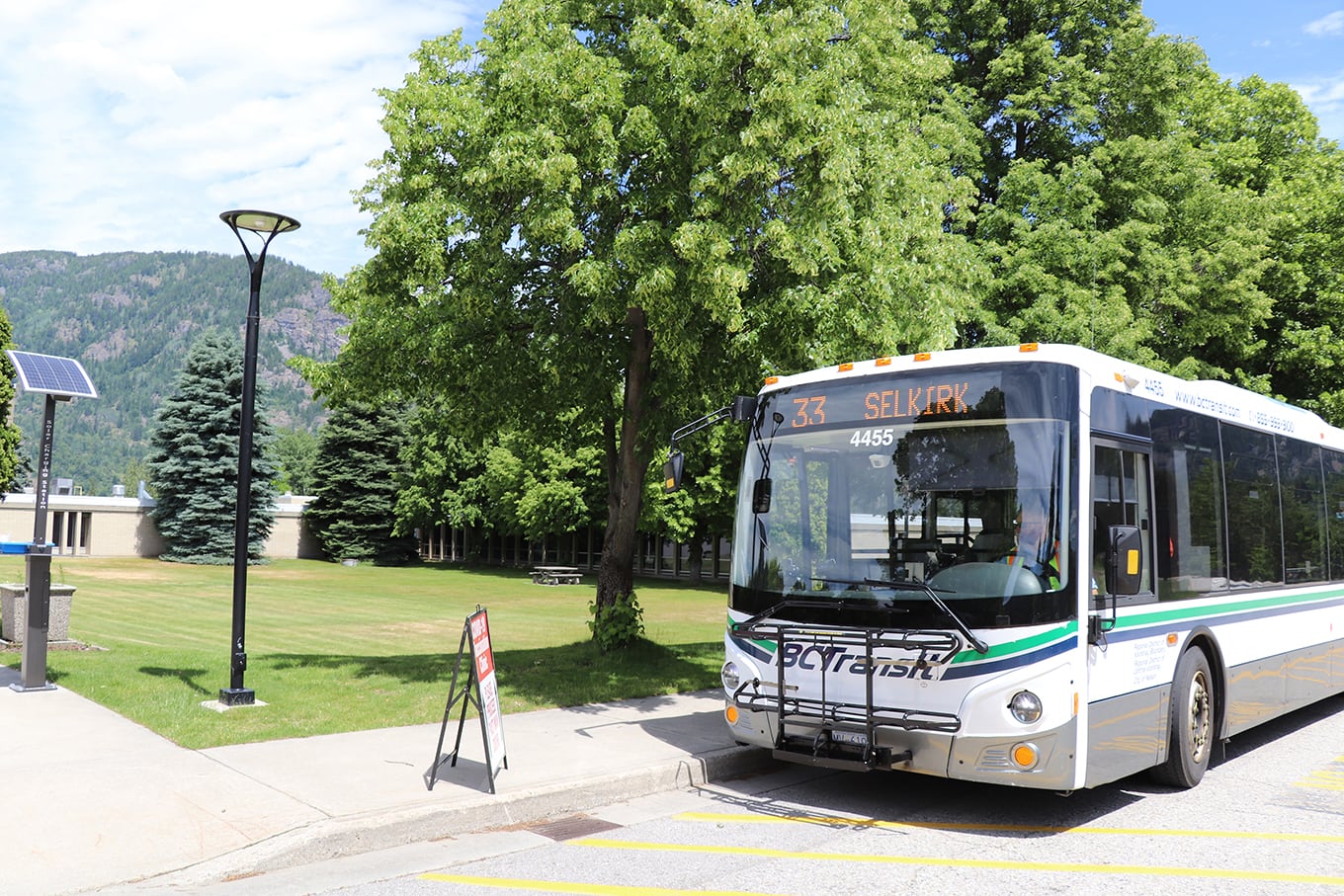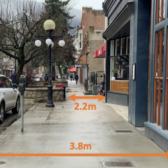Selkirk College Researchers Put Focus on Bolstering Rural Public Transportation
The federal government’s effort to create a stronger and more sustainable public transportation system nationwide is getting some analytical assistance from Selkirk College’s Applied Research & Innovation Centre.
With a team of researchers and post-secondary partners from across Canada, Dr. Sarah-Patricia Breen’s application to the Social Sciences & Humanities Research Council’s (SSHRC) knowledge synthesis grant on mobility and public transportation was ranked first amongst the 27 funding recipients.
Work started last month on the Navigating Rural: Place-Based Transit Solutions for Rural Canada project that will synthesize and critically assess existing rural transit literature in order to clearly identify the range of rural barriers and how these barriers vary by place.
“There are so many new and innovative options related to transit these days, it’s so far beyond traditional fixed-route transit,” says Breen, who is the Selkirk College-based BC Regional Innovation Chair in Rural Economic Development.
“However, rural communities continue to struggle with establishing and maintaining sustainable public transit. Given the amount of new funding that the federal government will be distributing in support of transit in the coming years, it’s exceptionally important that we provide a clear understanding of the range of barriers rural communities face and how current and future programs can best help address these gaps.”
Together with partners from the University of Guelph, Simon Fraser University and the Canadian Rural Revitalization Foundation, a project team of three post-secondary student researchers are undertaking work that ranges from mapping out innovative examples from across rural Canada to better understanding challenges with existing funding programs to doing a detailed analysis of all the barriers rural communities face when it comes to transit.
Largely desktop work, the team is compiling and analyzing existing information, articles, reports and websites.
“Transit literature is often dominated by rural places that are very close to large urban centres, so we have a better understanding of those places,” says Breen.
“Our project team wants to build that understanding to bring in the full range of different rural communities across Canada. Because the challenges and needs here in the mountains of south-eastern British Columbia can be very different from coastal communities or from prairie farming communities. It’s important that we don’t treat rural communities like they’re the same thing.”
The federal government’s focus of using insight and evidence to support informed policy making is the foundation of the project.
Other topics being explored through this round of knowledge synthesis grants at post-secondary institutions across the country include focus on e-bike infrastructure, equity and justice in public transit, active transportation, and more. The projects will be compiled into reports that will be received by policy and decision makers at federal, provincial and local levels of government.
“From a rural economic development perspective, transit and mobility are incredibly important,” Breen says of the Selkirk College-lead project. “The availability and functionality of transit systems can create jobs, help retain residents, improve access to goods and services, as well as helping reduce greenhouse gas emissions.”
Breen and her team will be presenting the findings of the Navigating Rural: Place-Based Transit Solutions for Rural Canada project at a national conference this fall and the report will be made available to the public by the end of 2021.
Learn more about the BC Regional Innovation Chair in Rural Economic Development based out of Selkirk College’s Applied Research & Innovation Centre at: https://selkirk.ca/research/ric
Photo Caption: Public transportation is vital to the future of Canada’s rural communities and a Selkirk College-based team of researchers is looking deeper at ways to make improvements.


























